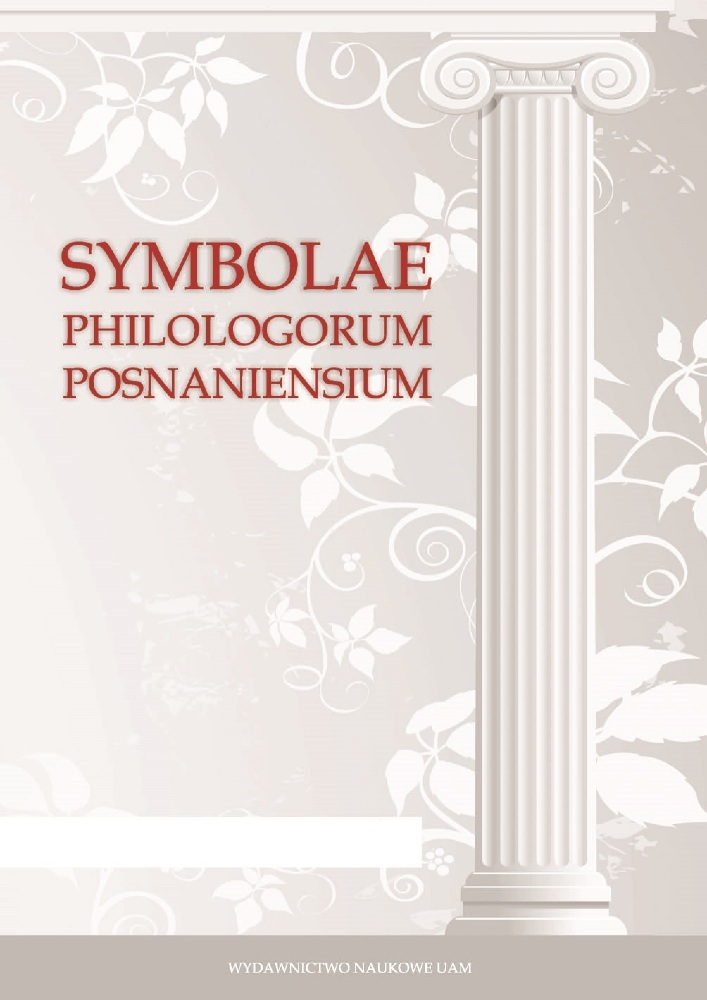Abstrakt
Quintilian begins the 30th chapter of the 11th Book claiming the rules of oratory declamation are identical with the rules of word art. Pronuntiatio will be more clear if, above all, words will be spoken whole and not swallowed or omitted. According to Quintilian, well-chosen pronuntiatio is adjusted to the topic of the speech. For the most part it is driven solely by emotions and the orator’s voice rises and resounds. Voice, which is a kind of mediator between us and our audience, will reach the judges in the same shape it leaves us. Next the author of Institutio oratoria devotes a large passage to gesticulation as it complements voice and is obedient to the commands of mind. In plays written for performance on the stage the masters of oratory declamation find inspiration for expressing emotions also from the characters of a drama. This is why in tragedy Merope is sad, Medea is terrifying, Ajax is benumbed and Hercules is aggressive. In laudatory speeches, with the exception of funeral ones, the words should be flowery, magnificent and exalted in order to express thanks, encouragement etc. The funeral speeches, consolations and most of defensive court speeches are characterized by pain and humility. When we speak in senate we need to be authoritative, when in front of the people – dignified, when in private affairs – moderate. Pronuntiatio should have three qualities: it should cause good will, convince and affect, as this is how delight can be naturally evoked. Favour of the audience can be won either by praise of character, which is mysteriously revealed in the voice and gesticulation of an orator, or by the charm of style. Quintilian ends Book 11th with a remark that moderation plays the most important role. His aim is to form an orator, not a comedian. This is why he does not recommend to search for all the subtleties of gesticulation, nor to use classifications, rhythms or emotional states in the way of speaking. He is right when he criticises pronouncing words with exaggerated face expressions, distracting gesticulation and abrupt changes of tone. An orator should control his speech, aiming to achieve elegance and style and yet not to lose the authority of a noble and dignified man.
Pobrania
Brak dostępnych danych do wyświetlenia.
